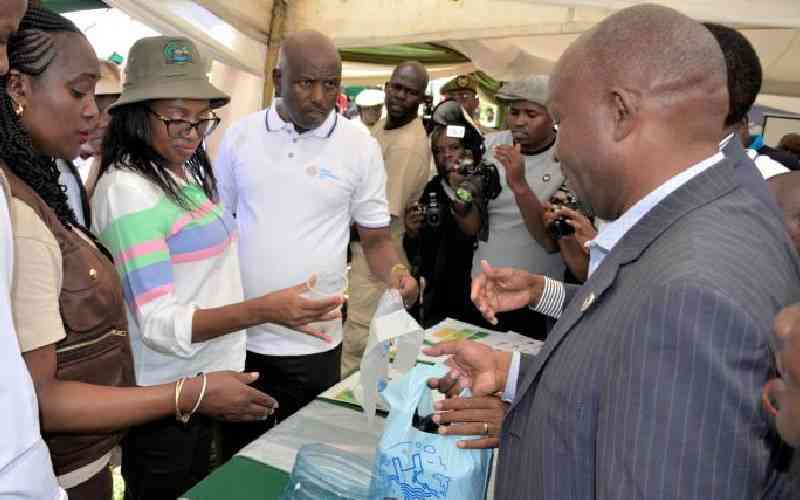
Director of Ecosave Technologies Daniel Wanjuki (right) demonstrates to Cabinet Secretary Ministry of Environment, Climate Change and Forestry Soipan Tuiya (left) and Nakuru Governor Susan Kihika (second left) how biodegradable bag, made of starch, dissolves in water, during the World Environment Day celebration at Lake Nakuru National Park in Nakuru on June 5, 2023. [Kipsang Joseph, Standard]
It looks like an ordinary single-use plastic bag, stretches and crumbles like it but interestingly melts into a milky substance upon contact with water.